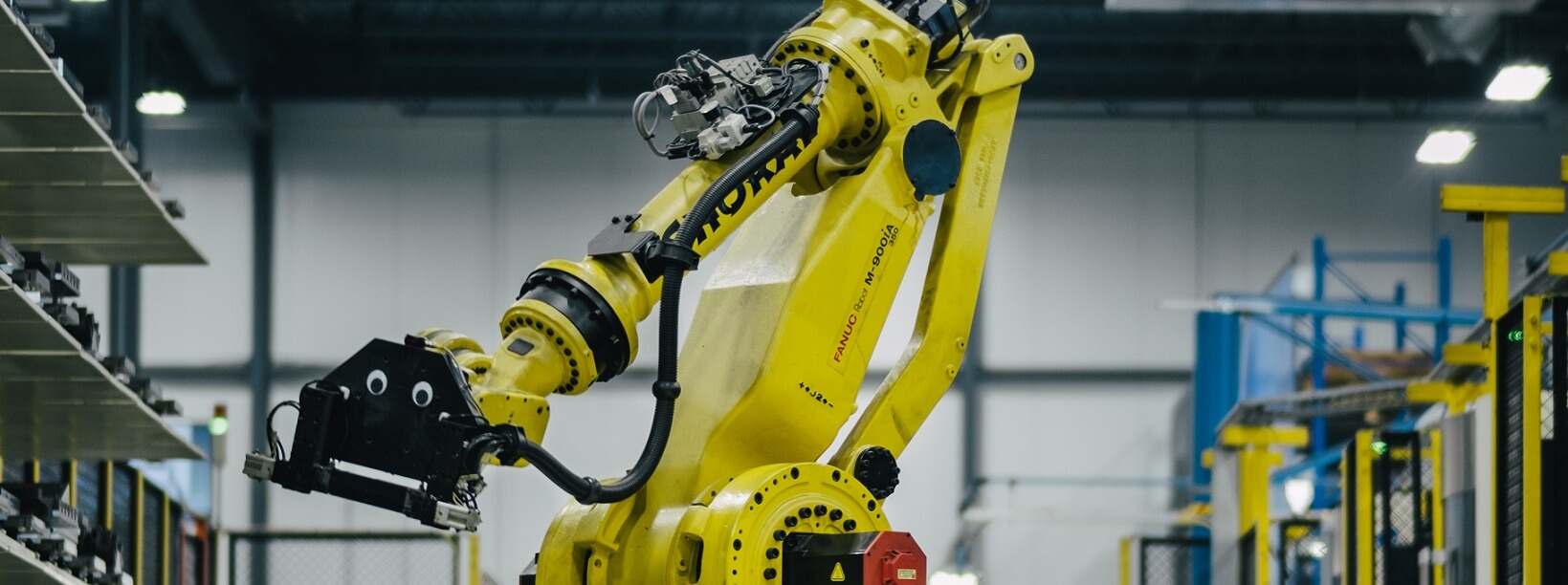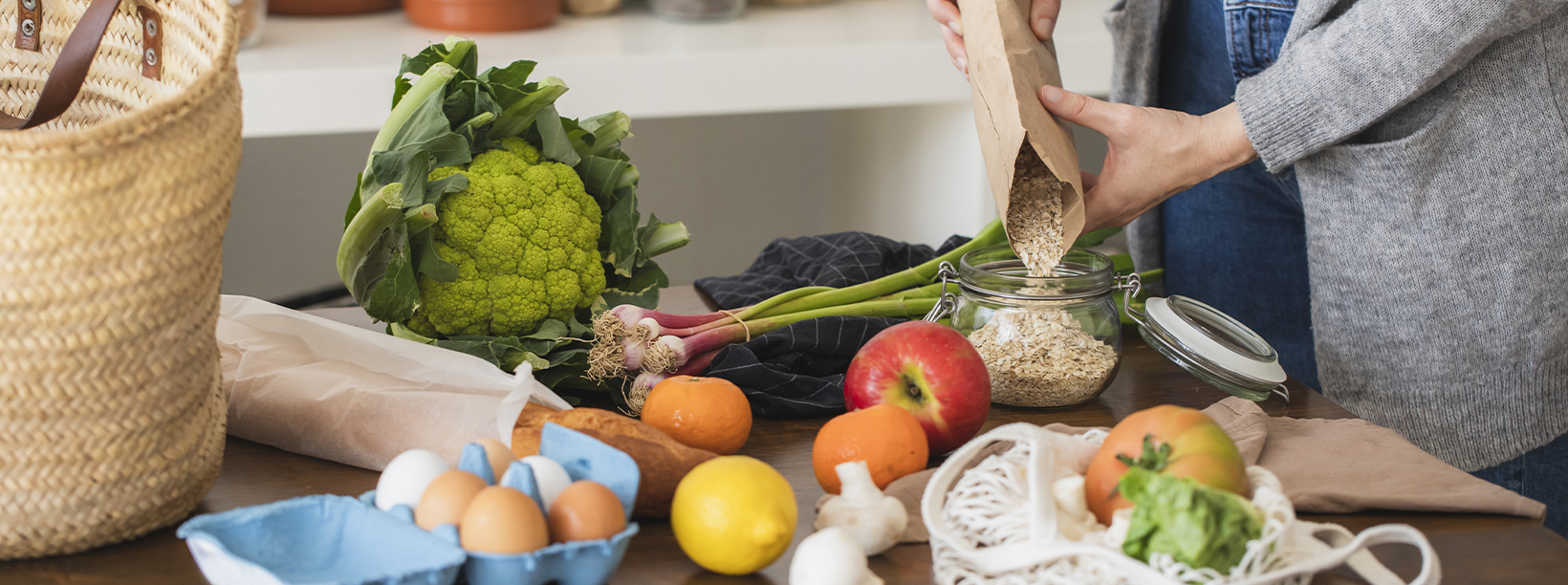PODCAST Ep. 04 (in French) – Is sustainable food autonomy possible in Quebec?
Food autonomy in Quebec is desirable for economic, social and environmental reasons as long as it can be passed on to future generations. Two Fonds de solidarité FTQ experts explain.
Just over half of the food on the average Quebecer's plate is locally produced, according to a study by Quebec's Ministère de l'Agriculture, des Pêcheries et de l'Alimentation. So there's plenty of room to grow our local share of food production, processing and distribution. The good news is, there's no lack of interest for doing so.
Listen to the podcast (in French):
"With all the disruption to international supply chains caused by the pandemic, we've just witnessed something unprecedented: a simultaneous awakening of consumers, the agri-food industry and governments," says Benoit Tétrault, Investment Manager, Private Equity and Impact Investment at the Fonds de solidarité FTQ, who specializes in the agri-food and health sectors.
"From now on, food autonomy won't only satisfy an economic or patriotic desire for creating added value and employment, but also a growing need for fostering proximity between consumers and producers while shrinking the sector's environmental footprint."
Some companies are already well along in the process; Tétrault points to Olymel, the giant pork producer, which controls all the elements in its value chain locally, from pig genetics, to domestic and foreign distribution (the Fonds is an Olymel partner via its Sollio Groupe Coopératif parent). But in other sectors there’s still a lot of room for progress.
A few ideas to start off
So where do you start? First off, by building more fruit and vegetable greenhouses.
"Quebec is still underrepresented in greenhouse production, with just 6% of the Canadian total. Whether we're talking about tomatoes, lettuce, cucumbers, or peppers, we could reduce our imports from the other provinces, the U.S. and Mexico by boosting our investment in greenhouse infrastructure," says Nathalie Bilodeau, Senior Marketing Advisor, Market Analysis and Business Intelligence at the Fonds.
That's what investors like the Fonds have started doing, for instance, by financing the construction by Productions Horticoles Demers of one Quebec's biggest greenhouses. At the leading edge of technology, the Lévis installation will help the Fonds partner company take on international competitors and double its annual production.
Some local companies are also looking at developing vertical greenhouses, ideally in urban settings. These have a small carbon footprint, require little fertilizer, recycle their water, generate fewer emissions and are less labour intensive than field cultivation, not to mention that traceability of local produce is so much easier.
Quebec is also known for the high quality of its soy. The Fonds just closed a new investment in Ceresco, which specializes in the marketing and export of GMO-free and Identity Preserved (IP) soy, which relies on strict controls and full traceability to guarantee varietal purity and the quality of seed. This investment will help ensure a local supply of this vegetable protein.
"Another avenue would be to process more of the grains and oilseed we grow in Quebec. Right now, we export a lot without further processing, then we re-import the finished products that are processed elsewhere. Some companies are starting to promote local processing," Bilodeau says.
She mentions two companies that have been part of the broader Fonds financing network, via the Fonds régionaux (regional funds) and the Fonds Locaux (local funds) : Soya Excel, in Saint-Charles-sur-Richelieu, which makes oils for animal consumption from local organic soy, which in turn allows production of local organic meat; and health foods brand Fourmi Bionique, which procures natural, organic, equitable ingredients from local producers as much as possible.
"We can push the logic and profit from consumers' appetite for vegetable proteins by promoting their processing. More and more companies are entering the space," she says.
When it comes to animal protein, the aquaculture sector presents plenty of opportunity for self-sufficiency, not necessarily in coastal regions but with inland ponds geared towards producing a high quality product at a low cost. Tétrault cites the example of salmon (Atlantic, Pacific or Coho), which is still over-imported, or arctic char, which is still mostly a product of traditional fishing activity.
"In addition to its contribution to Quebec's food self-sufficiency, developing aquaculture helps in the fight against over fishing, which is a growing concern off our shores, putting more and more species at risk," he says.
And therein lies one of the fundamental criteria for successful autonomy: it needs to adhere to principles of sustainable development.
Sustainability and competitiveness: two inseparable challenges
"Producing without importing is one thing. But it needs to be done without compromising the ability of future generations to meet these same needs. That means preserving soil, climate and biodiversity and moving towards carbon neutrality," Bilodeau explains.
Of course, the challenge is to achieve all this while minimizing the impact on consumer pricing – without which consumers' enthusiasm for food autonomy will be short lived.
"You have to keep in mind that Quebec households have limited means. Our industry competes with deep-pocketed multinationals. To make sure local products can compete on the shelf, we need to accelerate the adoption of technology," Bilodeau says.
Digitization, automatization and robotization are all areas of expertise Quebec Inc. has locally, and that can help meet the dual challenge of sustainability and competitiveness, she believes.
"That's necessary not only for improving performance, consistency and quality, but also for addressing the labour shortage which has reached critical levels in the sector."
There's one aspect the Fonds holds dear, as it invests the savings of Quebec's workers: any technological transition needs to be "fair", meaning it needs to take into account socioeconomic impact, preserve jobs, promote professional development or, in other words, put people first.
Traceability: a positive result
Another advantage of technology is to pave the way to a never before seen level of traceability, Tétrault adds.
"During the mad cow crisis of 2002, all the beef markets slammed shut because of a single case in Western Canada. This compelled the industry to optimize traceability in animal production, from genetics all the way through distribution," he recalls.
Active in the Quebec agri-food sector since 1985, the Fonds is well-positioned to spot trends in the industry as well as among consumers. And what consumers insist on most is traceability.
"Today people want to know where products come from, how they're made and what goes into them. They'll be better and better equipped to consult this information at the time of purchase on their mobile devices, and if it doesn’t meet their criteria in terms of sustainability and carbon neutrality, for instance, it can become a barrier to entry for producers," Tétrault explains.
It's with this in mind that the Fonds supports and advises its partner companies in their adoption of technology, beyond the financial investment. At companies' disposal is Groupe Asthuce, which is made up of multisectoral experts that make strategic and operational recommendations to entrepreneurs that have neither the time nor the means to formulate opinions when it comes to challenges of this magnitude.
As the Fonds and other institutions continue to push for sustainable autonomy, Bilodeau believes, the goal becomes more and more realistic.
"We already have a diverse and robust agri-food ecosystem that not only has the capacity to create self-sufficient and carbon-neutral food chains, but also to look towards growing sustainable exports."
In collaboration with journaldemontreal.com

 By Benoit Tétrault
By Benoit Tétrault  and Nathalie Bilodeau
and Nathalie Bilodeau 

